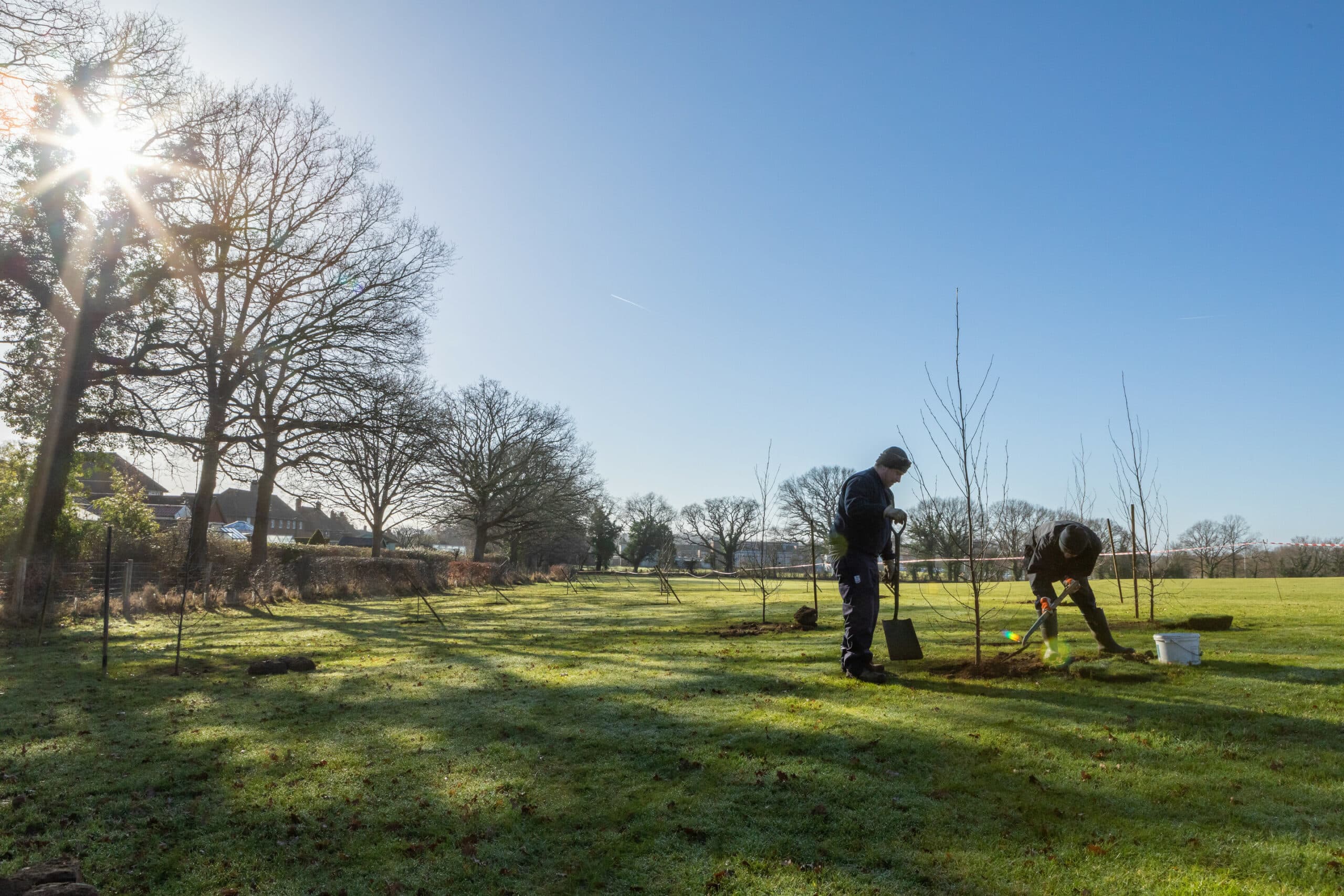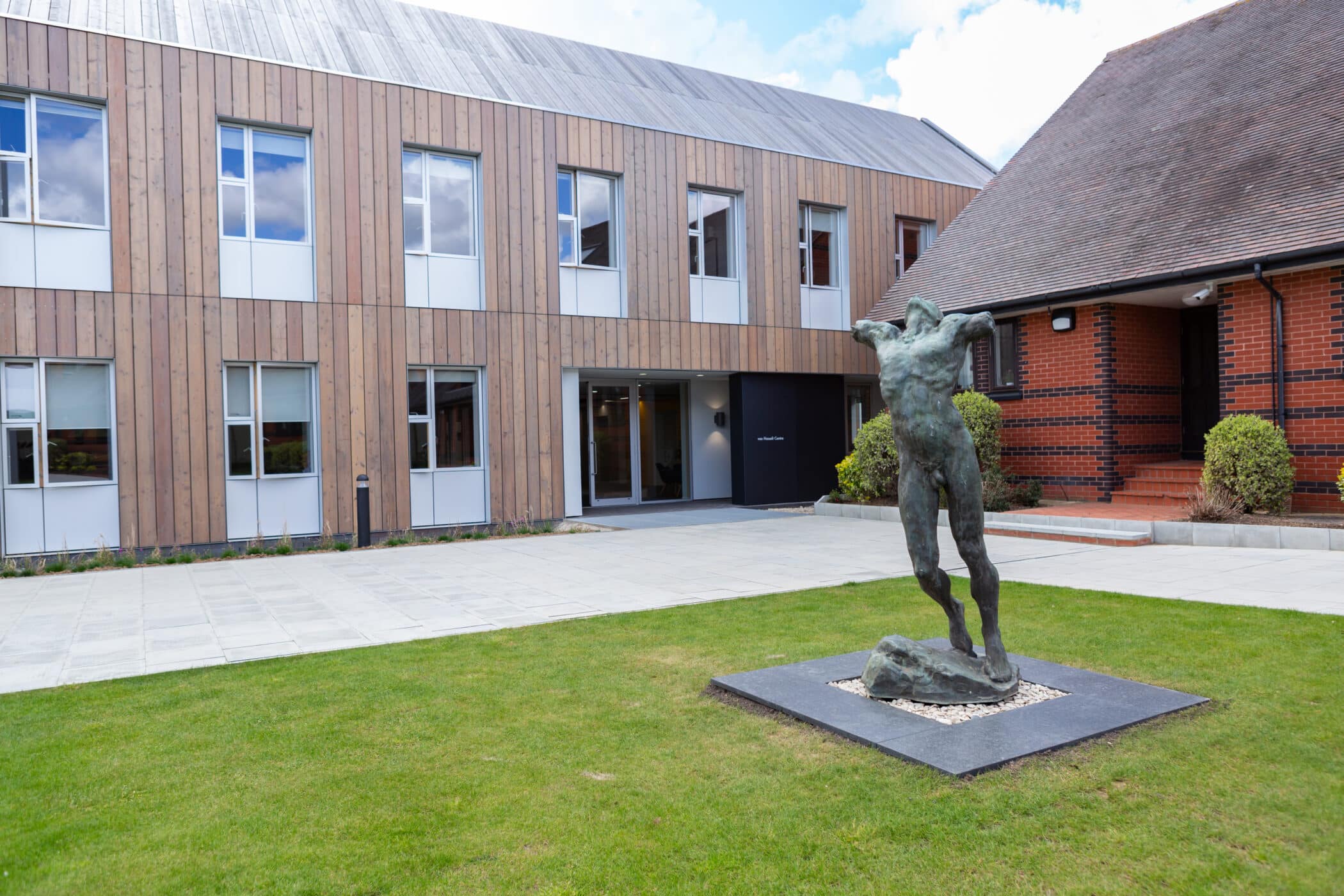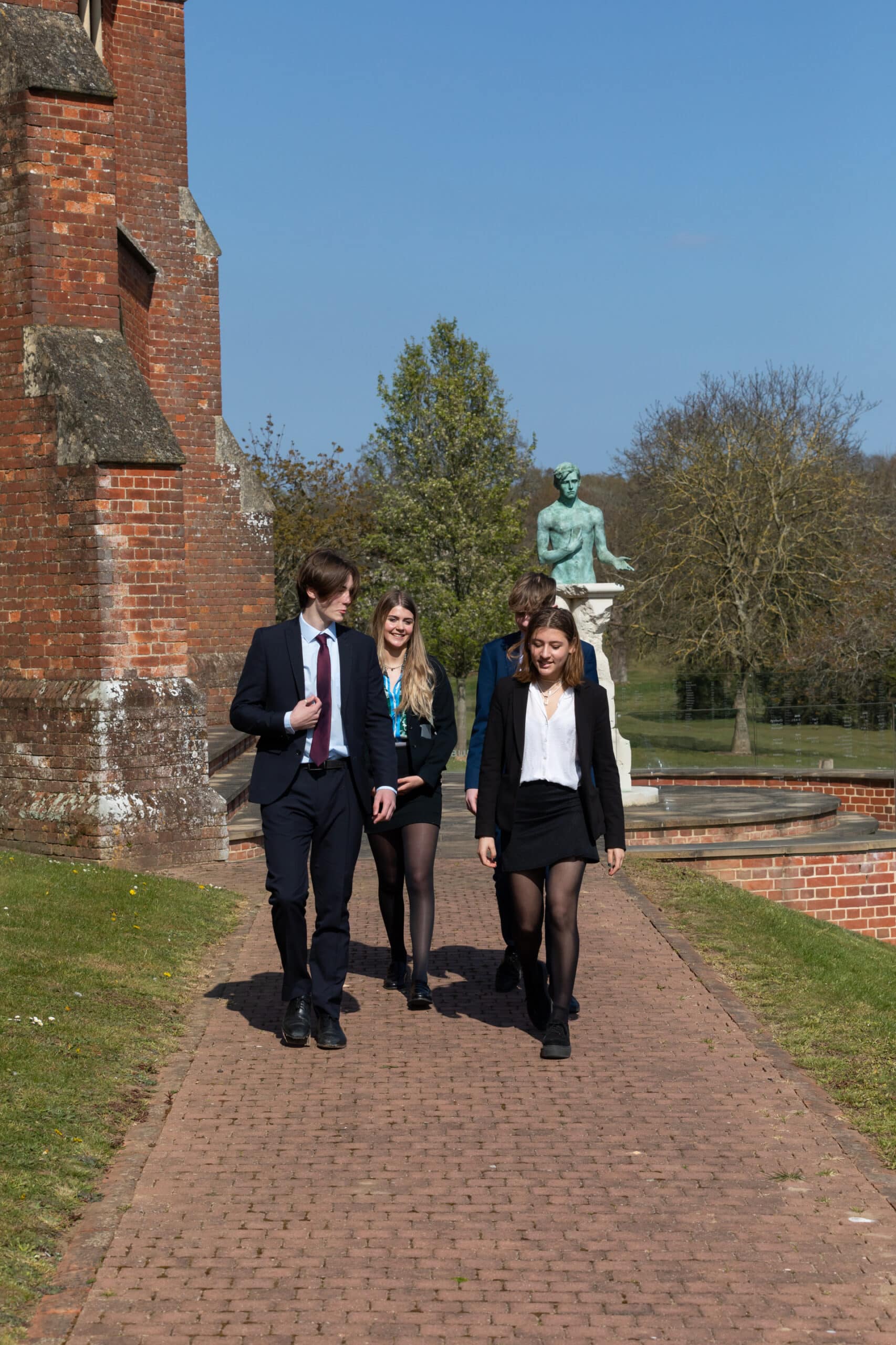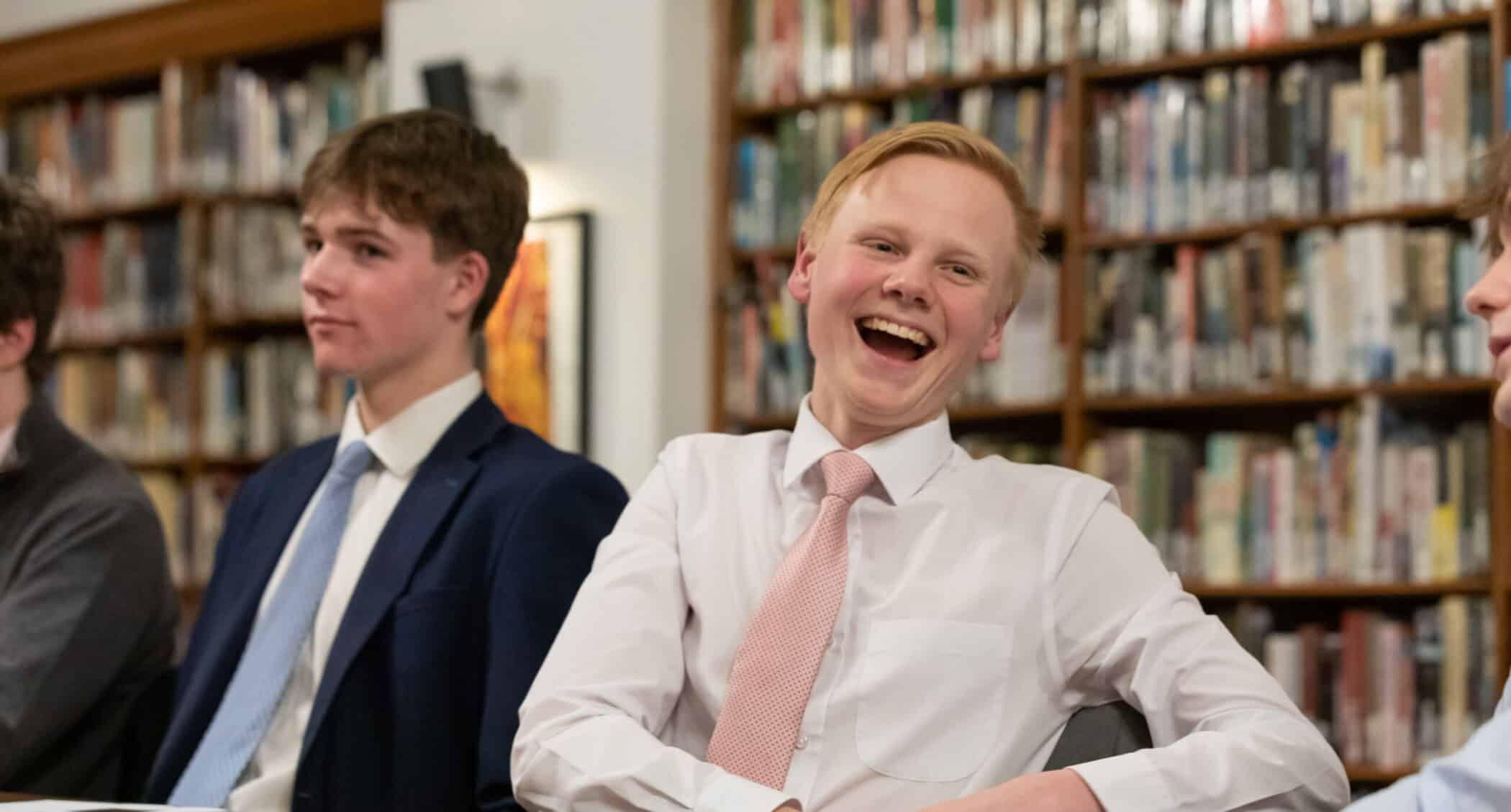Statement of intent:
As a leading school that seeks to be forward-thinking, caring and globally responsible, Cranleigh School recognises and embraces the importance of developing and implementing ‘environmental sustainability’ in order to:
- minimise our planetary and environmental impact, with especial focus on reducing our Carbon Footprint.
- safeguard the diverse beauty and abundance of the planet, recognising our place within its complex systems;
- future-proof the school against the changing implications of Climate Change, ensuring energy and resource security;
- to meet our wider legal, social and communal obligations in terms of environmental and social governance (ESG);
- produce school leavers and Cranleigh community members who understand the importance of environmental awareness, a positive engagement with nature and sustainable behaviour
Sustainability should be:
- Evidence based
- Target driven
- Time-aware
- Collaborative
- Creative
- Community-centred
- Educationally focused
- Nature-focused
- Accessible for all
- Equitable and just
- Inspiring (“Wonder”)
- Urgent.
The Sustainable Development Goals:
The Sustainable Development Goals (SDGs) provide a compelling roadmap for a more equitable and sustainable global community. As such, wherever possible, the 17 UN SDGS will be used to help guide and give context to our strategy initiatives. https://sdgs.un.org/goals
Key appointments to drive sustainable action:
The appointment of a Head of Sustainability and Environmental Education, along with a Sustainability Prefect, the (pupil) Sustainability Council, House Eco Prefects, The Cranleigh Environmental Sustainability Committee (representatives from across the school community) and a governor with specific oversight, demonstrates our commitment to placing sustainability and the environment at the heart of our vision moving forwards.
Key Areas for focus*:
* It is presumed that all the areas of focus outlined below will have decarbonisation as a central priority.
Environmental Education
Cranleigh expects all members of its community to understand the origins, basic theories and impacts (local and global) relating to sustainable development and Climate Change. Importantly, there should be a focus on practical, equitable solutions that all can undertake to minimise our environmental impact.
Summary of our plan for this area: Environmental Education will be primarily carried out through curriculum teaching, PSHE and enrichment opportunities such as lectures, Eco Week, Outdoor Learning Week, House Strategies and the work of Sustainability Council. These will be devised and delivered by the Head of Sustainability and Environmental Education, in collaboration with Educational Senior Leadership and the Heads of Departments.
Engagement and Advocacy
Cranleigh expects all members of its community to understand that knowledge in of itself is not enough: we must all be involved in taking active steps to improve our sustainable credentials and minimise our impact, both personally and for our community’s benefit. All community members should be supported to find resources and access to areas they are passionate about.
Summary of our plan for this area: Engagement and Advocacy will be primarily carried out through the work of the Head of Sustainability, The Sustainability Council and our active involvement with The Cranleigh Youth Council, The Surrey Environmental Actions Schools, The UK Schools Sustainability Network and other supporting organisations that work to support the environment.
Biodiversity, nature and grounds
Cranleigh is blessed with beautiful, extensive grounds that already play host to a huge variety of flora and fauna. Cranleigh expects all members of its community to recognise and value this, understanding our fundamental reliance on and interdependence with, the natural world. Cranleigh will work to continue to improve the biodiversity of our grounds, create areas for inspiration and engagement with nature and continue to minimise our impact on nature through our actions.
Summary of our plan for this area: This will be primarily carried out through: major projects like The Queen’s Quad and the construction of outdoor classrooms; the continuing work of the Grounds Staff in on-going tree planting and developing more areas of carefully managed, wild planting; developing nature walks throughout our grounds and through a variety educational activities such as Outdoor Learning Week, Eco Week and Voluntary Action’s gardening provision.
Buildings and Estates
Cranleigh has a diverse and complex estate and whilst we acknowledge the complexity of this operation, we intend to place sustainability at the heart of decisions made with regard to the upgrading of existing buildings and the construction of new ones.
Summary of our plan for this area: The decarbonisation of our Buildings and Estates will be primarily carried out under the oversight of the Director of Operations and the Governing Body. We have recently appointed Atelier 10 to conduct a detailed sustainability survey that considers this area and we will act on their findings.
Energy and Resources
As a school that runs 24/7 for large parts of the year, Craleigh acknowledges the impact of its energy and resource usage (Scope 1 – 3). Cranleigh will work hard to reduce the carbon footprint and other impacts of all energy and resources it sources and will place sustainability as a central consideration in the procurement of these. Equally, Cranleigh expects all members of its community to be mindful of the rising impact of energy and take active steps to minimise usage wastage.
Summary of our plan for this area: Sustainable procurement of energy and resources will primarily be carried out under the oversight of the Director of Operations and the Director of Finance. We have recently appointed Atelier 10 to conduct a detailed sustainability survey that considers this area. In addition, the school is actively exploring opportunities to invest in the creation of our own sustainable and secure energy, such as solar, wind and ground source heating. Activities in school will be strategised and driven by the Head of Sustainability, Sustainability Prefect and the Sustainability Council to ensure community members are doing their part, such as house strategies to save energy and water and the monitoring of usage in different areas of the school.
Finance and Investment
Finance and investment is an area that is absolutely key to minimising both an institution’s carbon footprint and wider environmental footprint. Cranleigh acknowledges that decisions on envrionmental sustainbility within investment are often also moral and equitable decisions and sustainability will be a central concern when deciding where and with whom Cranleigh invests its financial resources.
Summary of our plan for this area: Sustainable Finance and Investment will be primarily carried out under the oversight of the Director of Finance and the Governing Body.
Procurement and Food
Cranleigh acknowledges that there is a profound impact on the environment of what we procure, how this is made and where this comes from. It is our duty to ensure that the impact of our procurement is absolutely minimised; we also understand it is our duty to educate members of our community about the impact of what they buy and use and to make educated, sustainable choices wherever possible. Cranleigh expects that all budget holders actively demand sustainable options when ordering products for use at school. As part of this, Cranleigh understands that Food is a huge driver of climate change and places special emphasis on the sensible procurement of local and seasonal produce and to follow science when deciding upon the dietary choices for the school.
Summary of our plan for this area: Improving the sustainability of our procurement will primarily be carried out through supporting all our budget holders to make sustainable choices when buying for the school. We also run a number of active initiatives within the student body, such as: the development of our new second hand uniform initiative, the second hand clothes sale; the provision of excellent vegetarian and vegan meals in collaboration with our food partner, Harrisons and, importantly, the continued support for our ‘Meat Free One Day’ initiative where one of each meal a week is entirely vegetarian.
Travel, trips and transport
Cranleigh understands that how, how often and how far we travel has huge implications for climate change and human health. Whilst student opportunities is absolutely at heart of all our provision, we acknowledge that we must think creatively and sustainably about all our travel and trips.
Summary of our plan for this area: A travel survey, being conducted by the Sustainability Council, will establish where the main areas for focus are in terms of travel to and from school and encourage lift sharing, no-idling areas and alternative transport measures to school. The school already provides buses from London which considerably educate our traffic. In terms of travel and trips, flying is the most carbon-intensive method of travel and as such we recommend that all trip planning is prioritised to avoid flying wherever possible, asking staff to identify if a similarly effective trip can be programmed without flying. Where this is not possible, we are currently consulting on the effectiveness of offsetting all our flight travel
Waste management
Cranleigh makes waste. This is unavoidable and as such we acknowledge our absolute requirement to reduce the impact of this as much as possible. We adopt a policy of reducing waste as much as possible in the first place, re-using all we can and then recycling everything left over.
Summary of our plan for this area: Waste management is run alongside our partner Baxter who help us monitor our waste closely. Currently we are really pleased to say that we send ZERO waste to landfill, recycling approximately 61% of our waste and the rest is reclaimed for energy production in a controlled environment. We are also proud that all the food waste from our kitchens is sent to the local Dunsfold Biodigester to be converted to biogas and fertiliser. However, we know we can do better and are currently in the process of redesigning our bins around campus to improve the amount and the types of waste we recycle. Students are running schemes like our Terracycle initiative (in conjunction with other Cranleigh schools) to recycle flexible plastics like crisp packets, sweet wrappers, bread bags and medical blister packs. This works alongside our ‘Golden Bin’ house recycling competition, currently held by Rhodes house.
Sustainability is “meeting the needs of the present without compromising the ability of future generations to meet their own needs” while ensuring a balance between the ongoing viability of the school as a business and our duties of environmental care and social well-being.”






